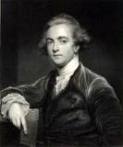Sir William Jones was born on Sept. 28, 1746 and died on April 27, 1794 in Calcutta. He was a British orientalist and was also ajurist. He is credited with initiation of translation of the ‘Manusmriti’ which happens to be the legal literature of ancient India. He also compiled and translated the important Dharmashastra texts.He penned down Grammar of the Persian Language in 1771 which serves as an authority. He also translated Moallakat in 1782 which was a translation of seven famous pre-Islamic Arabic odes, introduced these poems to the British public.He was called to the bar in 1774. In 1783 he was appointed as a judge of the Supreme Court at Calcutta. In 1784, he founded theAsiatic Society of Bengalalong with Nathaniel Halhed and Henry Thomas Colebrooketo encourage Oriental studies. In the presidential discourse to the Asiatic Society in 1786, he put forward the common ancestry of Sanskrit, Latin, and Greek which paved the way for the development of comparative linguistics in the early nineteenth century.He voluntarily took up Sanskrit to prepare himself for formidable task of preparing of a vast digest of Hindu and Muslim law. In 1789, he published the English translation of Kalidasa’s ‘Sakuntala’ which was followed by publication of ‘Rtusamhara’ by Kalidasain the original text in 1792. His work on Hindus titled Institutes of Hindu Law was published in 1794 and that on Muslims titled Muhammedan Law of Inheritance was published in 1792.
J.C.C. Sutherland
J.C.C. Sutherland was an orientalist who served the English government in India when Lord William Bentinck was the Governor General of India in 1830s. His name is most known for his contribution to medical education in India. He was a member of the General Committee on whose recommendations Lord William Bentinck by Government Order in January 1835 abolished Ayurvedic and Yunani courses in Sanskrit College as well as the School for Native Doctors which was established in 1822. The Committee of which Sutherland was a member proposed to establish a full-fledged medical college for the instructions of native youths in the art of healing which was accepted and the entrance examination of the proposed Medical College was conducted on May 1, 1835. He was also the Secretary of the General Committee of Public Instruction constituted by Lord William Bentinck to decide whether native Indians seeking higher education should be educated in English or in Arabic and Sanskrit. In his second letter to Bentinck, Sutherland asked to follow Orientalist position as was also demonstrated through Clause 43 of the Charter Act of 1813 which granted the General Committee the right to oversee the funds appropriated by the government for institutions of higher education in India for the revival and improvement, and the encouragement of learned natives of India. Sutherland translated the ‘Dattakamímansa’ and the ‘Dattakachandrika’ which still serves as an authority of Hindu law on adoption in India.He also served as the secretary of Sanskrit College in 1837.
Henry Thomas Colebrooke
Henry Thomas Colebrooke(June 15, 1765 – March 10, 1837) was also an orientalist. He is known as the first great Sanskrit scholar of EuropeIt is a prevalent notion that the earliest knowledge in Europe of the history of Indian mathematics in 19th century was because of Colebrooke as he after collecting various Sanskrit mathematical and astronomical texts splashed in 1817 in his Algebra with Arithmetic and Mensuration from the Sanskrit of Bhaskara and Brahmagupta. He continued the works of William Jones and published ‘A Digest of Hindu Law on Contracts and Successions’ based on a Sanskrit composition by orthodox Indian scholars. He translated the two treatises, theDayabhaga of JimutavahanaandMitakshara of Vijnaneshwara. He also edited several Sanskrit works like ‘Amarakosa’, ‘Astadhyayi’, ‘Hitopadesa’ and ‘Kiratarjuniya’.He advocated free trade between Great Britain and India in ‘Remarks on the Husbandry and Commerce of Bengal’. He also served as a judge of the new court of appeal that was established. He later was appointed as a professor of Sanskrit and Hindu law at Fort William College.After residing in Indiafor eleven years, Colebrooke began the study of the Sanskrit language.He became a member of council in 1807 and returned to England.In his stay in India, healso served as a director of the Royal Asiatic Society which he co-founded with Sir William Jones and Nathaniel Halhed.

